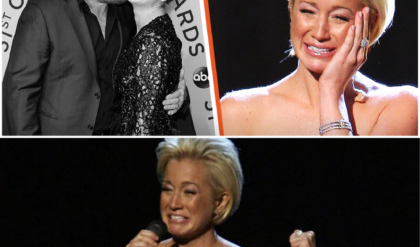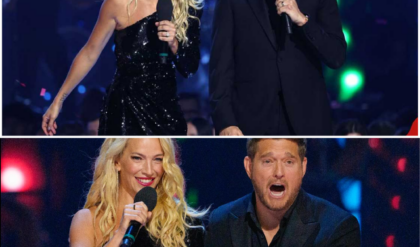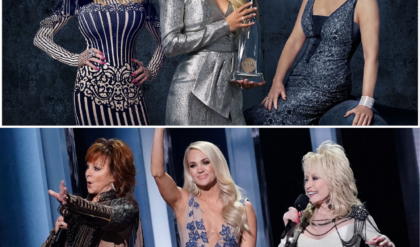Elon, his brother, and his cousins are entrepreneurs who are changing the automotive, space-exploration, food, and green-energy industries. Elon’s mother is a model and public-health teacher. Emily Jane Fox chats with the family, and traces a path from South Africa to Silicon Valley.

From left to right, Russ Rive, Elon Musk, Kimbal Musk, and Peter Rive about 35 years go in Pretoria, South AfricaCourtesy of Maye Musk.
Here’s an idea that one of five young South African cousins threw out sometime in the 1980s: What if they could arbitrage the cost of chocolate in an Easter egg? Plain old chocolate at the time cost virtually nothing, but a nicely packaged chocolate Easter egg cost about one rand. So the young cousins melted regular chocolate, molded it into egg shapes, wrapped the chocolate eggs in foil, and went around the poshest parts of their Pretoria neighborhood. And instead of selling these chocolate eggs for the going rate, they cranked up the price to 10 rand.
When neighbors balked at the price, the boys responded as they’d rehearsed. Purchasing from them, they said, would mean the buyer was supporting young capitalists. It worked.
This is not the kind of scheme most 14- or 15-year-old relatives dream up, but these were not most 14- or 15-year-olds. This is a piece of lore essential to understanding what may be the 21st century’s First Family of entrepreneurship, a family of happy capitalists intent on cracking today’s toughest problems by building businesses. Those budding teen tycoons included two sets of brothers: Elon Musk, whom you’ve likely heard of, and his brother, Kimbal, a fellow entrepreneur focused on trying to change America’s food culture; and Lyndon and Peter Rive, the founders of SolarCity. (Their brother Russ now runs the art, technology, and design company SuperUber, in Brazil.) Each family also has a sister: Tosca Musk, a filmmaker, and Almeda Rive, a competitive dirt-bike rider.
Elon may be the most famous of the clan, thanks to his mad-scientist ways and the Beatles-esque buzz surrounding the companies he’s dreamed up—from PayPal to electric carmaker Tesla Motors to aerospace manufacturer SpaceX to what remains—for now—the mere concept of the high-speed Hyperloop. But each of the Musk-Rive cousins has achieved notable levels of success. Kimbal Musk co-founded The Kitchen, a group of eight restaurants that source directly from local farmers, and The Kitchen Community, a nonprofit that’s opened more than 250 school and community gardens that impact 140,000 kids each day. Lyndon and Peter Rive founded SolarCity, the energy-service company that has a market cap of about $4 billion, after Lyndon, Peter, and Russ sold their company, Everdream, to Dell in 2007.
America loves a familial power block—from the Emanuel brothers to the Williams sisters, the Kennedys to the Hemsworths. But there’s something even more intriguing about those Musks and Rives, given what appears to be their genetically pre-programmed ambition. How did five of them grow up to take on some of the knottiest problems on the planet, setting goals so lofty as putting civilians in space and transforming household energy use?
This being an origin story, it all has a great deal to do with their mothers: Maye and Kaye. They are—what else?—twins.
Maye, who was divorced from Elon and Kimbal’s father before Elon was 10, has two master of science degrees, practiced as a dietician, and worked on the side as a model to pay bills as a single mother.
“They grow up knowing you work hard, and the harder you work, the better you do and the luckier you get,” she recently told VF.com. “They also had to be responsible for themselves, because they had to help me.”
Lyndon Rive, whose parents were entrepreneurs in the natural-health business, recently recalled watching his mother—Kaye—work from 7 in the morning until 11 o’clock at night, every day.
“We grew up thinking that’s what people do, isn’t it? That’s what’s expected,” he says.
This bred quite a bit of independence, and quite a bit of time for the cousins to get up to something. The fact that they didn’t get allowances meant they spent that free time trying to come up with ways to make a buck. That they grew up 20 minutes away from each other made it easy to scheme together.
“We didn’t have a lot of oversight with our parents, so there was a freedom to get up to mischief. It was a different kind of mischief, though. It always had a capitalist bent,” Kimbal explains. “We were very excited, hungry kids with way too much energy on our hands. Not only were we individually inclined that way, but when you put us all together, then it’s like, What are we going to do now? Get a bunch of us in a room, and we come up with something.”
The Musk Family: From left to right, Maye, Lyndon Rive, Elon, Kimbal, and Peter Rive.
Photo-Illustration by Ben Park; By Fernando Leon (Maye), from Bloomberg (Peter and Lyndon, Kimbal), by Kevork Djansezian (Elon), all from Getty Images.
That’s why the older cousins—Lyndon is six years younger than Elon and was left on the fringes of much of their teenage business endeavors—came up with the idea to open an arcade close to their school. Elon, the ringleader, and his cousins signed a lease, got contracts in place, filled out a stack of forms at the city planning department, and nearly reached the last hurdle of getting a zoning variance before the city told them they were too young and needed an adult to sign off.
“Pete’s dad just lost it when we went to him to ask,” Kimbal says. “We hadn’t even mentioned it to them. It didn’t even occur to us.” Maye, for her part, said she was so busy working in those days that she didn’t hear about the venture until recently, when the story ended up in the press.
The cousins had a near-constant desire to do something different. “There would always be a conversation of ‘Let’s go somewhere. Let’s take the train to get there. Are we old enough to take the train?’” he says. “We all like adventure.”
That’s a disposition Elon said came not necessarily from their mothers, but from Maye and Kaye’s father.
“Our mutual grandfather was actually American, oddly enough, from Minnesota,” Elon said at a SolarCity event earlier this month, when VF.com asked about his relationship with his cousins. “He had a little private plane that he would fly all over the place, all through Africa and Asia. He was the first to fly a private plane from South Africa to Australia without any electronic instrumentation, so I think we’re lucky to be alive here. Maybe that sort of adventurous spirit is in all of us.”
The only thing that got in the way of their whims was the rule that none of them were allowed to quit, anything, ever. That’s why, when the Rive boys decided as kids that they wanted—needed—to take karate, their mother agreed. But they’d have to see it all the way through, until they earned black belts.
“She was very clear up front. She asked us if we were sure, told us we couldn’t quit and had to go all the way through. We were like, ‘Yeah, yeah, yeah, we love karate,’” Lyndon says. It turned out that he didn’t, in fact, love karate, but he spent about a decade doing it anyway, because he’d committed. He never reached the black belt, but he made it to national championships. “She early on programmed into us that, if you start something, you finish it.”
Despite the similarities, the boys did have their distinct quirks.
“I was the best child, and Elon was the hard child,” Kimbal says. “Have you met Elon? He’s a tough cookie. My dad and my mother always talk about how hard he was.”
For the record, Maye calls Kimbal “the perfect child,” not the best. She always had to search for Elon, who was constantly on one quest or another. He once fell off a roof, and he endured several episodes that required stitches. He refused to sleep and instead stayed up until five o’clock in the morning to read, which meant she had a hard time waking him up in the morning in time for school.
School, meanwhile, presented its own challenges. “Elon didn’t have friends,” Maye explains. “He was the youngest and the smallest in the class. It’s sad as a mother to see it.”
Lyndon and Peter, the Rive brothers of SolarCity, were more athletic, and still are. Peter played Ultimate Frisbee semi-professionally and competed in the world championships, and Lyndon is a longtime star in the little-known sport of underwater hockey (after playing for the South African team decades ago, he just made the U.S. team last month).
Their differences are part of the reason why they’ve been able to so easily work together as adults, which they’ve been doing for essentially two decades.
Maye with Elon, pictured left, and sister Tosca and Kimbal, on their way to school.Courtesy of Maye Musk.
Maye with Elon, pictured left, sister Tosca and brother Kimbal, on their way to school.
Kimbal had originally hoped to work in finance, but he decided to change course following a bank internship that he describes now as “the worst possible thing I could imagine.” It was summertime in the early 90s, and he needed a break to figure out his next act. Elon happened to have some time so the two took a road trip from California to Philadelphia, where Elon finished up his undergraduate degree, driving across the country in a nearly broken down 1970 BMW 3 Series.
“It was 120 degrees out and the car started heating up, so we had to turn the heat on to cool the engine down,” Kimbal recalls. “We were then driving around the Colorado mountains and the car just didn’t make it. We had all our clothes and blankets, so we set up a sleeping tent and just slept outside.”
Somehow, the car recovered and they made it to the East Coast, where the two founded Zip2, a city guide that provided information to media companies, in 1995. They each had strong ideas about how things should be built, and when they couldn’t come to an agreement, there was only one way for brothers to resolve things—through full-scale wrestling matches in the office. Kimbal wouldn’t say who won. “[My brother’s] bigger than me,” he explained, “but I have my ways.”
It was only natural for their cousin Russ to join them at Zip2. Lyndon, who at the age of 17 had started a profitable business in South Africa instead of going to university, traveled to California in 1998 to compete in underwater hockey. He and Russ had the idea to start their own company, the software firm Everdream, and Peter joined on a year later. (The Musks sold Zip2 to Compaq for a reported $300 million in 1999.)
By 2004, Elon had already co-founded and sold PayPal for $1.5 billion, and founded both SpaceX and Tesla. Kimbal had moved through culinary school in New York and opened his first restaurant, The Kitchen, in Boulder, Colorado. By the time Elon, Lyndon, and Lyndon’s wife were on the road in an R.V. to Burning Man that year, the seeds for SolarCity were planted.
“We had plenty of time to discuss our next business. We wanted to do something that had environmental impact and Elon suggested solar,” Lyndon explained. “I said, ‘Great. I have my marching orders. Let’s go.’”
Lyndon and Peter co-founded SolarCity, where they are and C.E.O. and C.T.O., respectively. Elon is the company’s chairman. Kimbal is on the board of both Tesla and SpaceX. They all see each other at least twice a month, and the entire family—brothers, sisters, moms, dads, daughters, sons—goes on an annual trip, usually over July 4 weekend. This year, they went to Spain; the year before, to Brazil to visit Russ.
“There’s a lot of playing, hanging out, eating well, and talking about business. We fire each other up by talking about the really cool things,” Peter says of the vacations. “We don’t make a point of it, but it just kind of happens. Kimbal is trying to transform food. We’re tackling energy. Because we get business and we get people, it’s what we like talking about.”
Even Maye, who’s teaching a public-health course in Los Angeles and traveling across the country modeling, Skypes with Kaye every single night. “We all enjoy each other’s company,” she says. “That’s what we do.”
After spending 60 hours a week working together, Lyndon will call Peter after a full day at the office and ask to hang out that night. Kimbal stayed at Elon’s house with him on a recent trip to L.A., and spent time at Lyndon’s when went he went to the Bay Area just before.
From the outside, it’s peculiar. Some families can’t keep it together long enough to remain civil through dinner. Most family businesses are filled with the kind of tension that calls for a stiff, five o’clock cocktail. But what this set of cousins finds most peculiar is that anyone would find their closeness uncommon.
“They’re our best friends,” Lyndon responds, with a genuine, blank stare. “Who else would you hang out with?”







